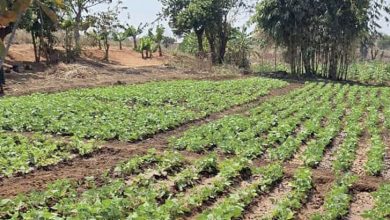Harbingers of death
It is Tuesday in May and Lilongwe is unusually cold.
A faint mist clings to the M1 narrowed by potholes and long abandoned by maintenance crews. The sky hangs low, and the air bites with chill.

At Simama or Falls, the Kabaza operating base, young men stand close together dressed in thick jackets. Some rub their hands to keep warm.
Others lean against their motorcycles, scanning the road for the first passenger of the day.
The bikes, dented, dusty, patched with wire and tape, are lined up without order. Only a few look smarter the rest look too tired to be on the road.
By 7:30am, the city is already awake and so are the kabaza riders. Among
them is Emmanuel Kawanga.
His motorcycle, an old Kinglion, has no side mirrors. It only carries one helmet reserved for passengers who may demand it. I am his second passenger and I immediately hop on the bike and grip the frame.
Without warning, we take off from Simama for City Centre roughly about eight to 10 kilometres away. For this trip, he charges me K6 000 which is way below what a normal taxi would demand.
Kawanga swerves between minibuses and potholes like someone who knows this road like the back of his hand.
“I always ride with speed so that we carry more customers,” he justifies his reckless riding.
Other Kabaza riders dart past us, weaving between traffic, some carrying two or even three passengers in full view of traffic police officers. But the officers do not move. They watch like spectators at a parade.
“They know we are not their customers. This is why they don’t stop us. The last time I dealt with traffic police was when I got into an accident. And even then, they were more interested in who was at fault than whether I had a licence,” he said.
This neglect by law enforcement is not an exception but something that has become a norm.
Despite the growing Kabaza population and mounting deaths, regulatory bodies and police appear powerless or simply indifferent.
As we pass City Centre, the traffic light turns red. But Emmanuel does not
stop — even though other vehicles are paused for crossing pedestrians. He glides through the intersection without hesitation.
“The lights are faulty most of the time,” he argues, though this one was working just fine.
I ask about his motorcycle licence.
He chuckles: “have you ever seen a Kabaza guy with a licence?” he asks. “ [It is mostly [those who have one worked for companies or NGOs. With the little we make, who can afford driving school?”
He has a point. Many Kabaza riders have never seen the inside of a classroom, let alone gone to a driving school. Some do not even know the meaning of road signs.
In the chaos of city traffic, they survive by instinct and sometimes, by luck.
Kabaza motorcycles are now one of the most common forms of public transport in Malawi’s cities. They are cheap, fast, and always available.
But for all their convenience, they are also deadly.
According to the Malawi Police Service’s 2024 Annual Road Traffic Report, motorcycle-related accidents accounted for 29 percent of all traffic deaths in 2023.
The report notes that more than 8 000 motorcycle accidents occurred last year alone, with over 3 100 resulting in serious injuries.
Lilongwe, the capital, recorded an 18 percent increase in Kabaza-related deaths compared to 2022.
And yet, enforcement remains cosmetic at best. Roadblocks target minibus conductors and private vehicles. Kabaza operators often ride past police officers with no mirrors, no helmets, and no registration plates. Many riders do not have licence.
Take Emanuel Jasi, for example. He learned by watching others everything he now knows about riding. He has been involved in two accidents already and yet, he does not insure his motorcycle. He says insurance is a luxury.
“We don’t earn enough for insurance. If I get K20, 000 in a day, that’s already a good day. My boss will need K8 000. After fuel and food, what is left?” he asks.
Gift Zimba One of the passengers says the Kabaza is good having filled the gaps in the transport system, but also in the morgue.
A visit Kamuzu Central Hospital’s Lilongwe Institute of Orthopaedic and
Neurosurgery (Lion) unit, where severe injuries are referred to, brings one face-to-face with the trauma of the unregulated motorcycles.
The nurses have nicknamed this unit ‘Kabaza Hospital’ because of the high percentage of victims of motorcycle-related accidents.
In 2023 Lion’s medical director Dr. Boston Munthali, said 30 percent of the injuries that come to the unit are from Kabaza, which he said also accounts for 28 percent of patients with long stays —ranging from weeks to months.
These are the lucky ones as others proceed to the mortuary.





